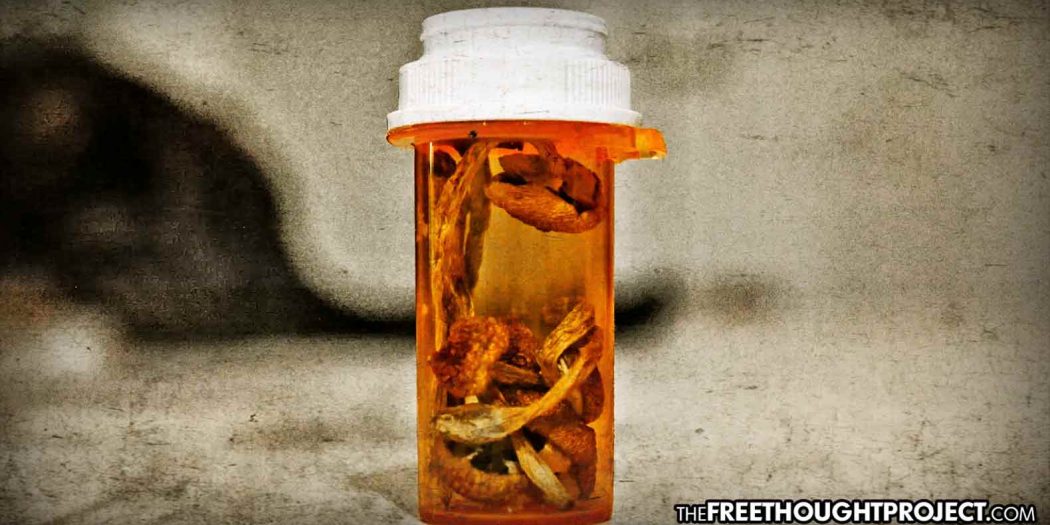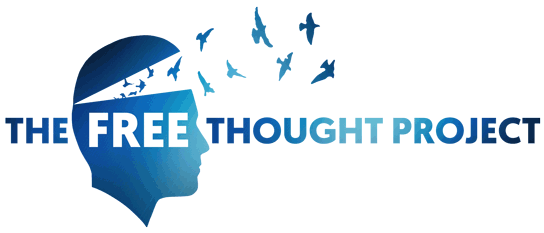Study Finds Magic Mushrooms As Good or Better than Antidepressants for Fighting Depression
A study carried out by researchers at the Centre for Psychedelic Research at Imperial College London has led to breakthrough discoveries about the impact psilocybin, or magic mushrooms, has on depression. The study found that treating depression with psilocybin may be at least as effective, if not more effective as antidepressants.
According to researchers, in the most rigorous trial to date assessing the therapeutic potential of a ‘psychedelic’ compound, researchers compared two sessions of psilocybin therapy with a six-week course of a leading antidepressant (a selective serotonin re-uptake inhibitor called escitalopram) in 59 people with moderate-to-severe depression.
The results of the study were recently published in the New England Journal of Medicine. According to the study, both groups had reduced symptoms of depression, however, the reductions occurred more quickly in the psilocybin group and were greater in magnitude.
After six weeks, the self-reported results from the patients suggested the psilocybin was just as effective as the pharmaceutical, and in many cases showed a slightly bigger – but ultimately statistically insignificant – improvement in symptoms.
“We strongly believe that the … psychotherapy component is as important as the drug action,” Imperial College London neuroscientist Robin Carhart‑Harris said.
“With a psychedelic it is more about a release of thought and feeling that, when guided with psychotherapy, produces positive outcomes.”
According to the study, five of the patients taking the SSRI regimen, had to stop due to the negative effects of the pharmaceutical antidepressants. None of the subjects taking the psilocybin had to stop.
This study is preceded by similar research which produced analogous outcomes. Multiple studies, including out of Johns Hopkins, have determined that psilocybin mushrooms are incredibly beneficial to those facing certain death. The studies found that psilocybin produced substantial and sustained decreases in depression and anxiety in patients with life-threatening cancer, and that mystical-type experiences on session days mediated the effect of psilocybin dose on therapeutic outcomes.
As TFTP reported, a study, published in the scientific journal Neuropharmacology, found that clinically depressed people had increased neural responses to fearful faces one day after a psilocybin-assisted therapy session, which positively predicted positive clinical outcomes.
“Psilocybin-assisted therapy might mitigate depression by increasing emotional connection,” neuroscientist and study author Leor Roseman, a Ph.D. student at Imperial College London, explained to PsyPost.
This is almost the exact opposite of how standard anti-depressants operate, as SSRI’s typically work by creating an “emotional blunting.”
“[T]his is unlike SSRI antidepressants which are criticized for creating in many people a general emotional blunting,” noted Roseman.
The reason studies like these are so important is due to the nature of side effects from these SSRI medications. There have been 150 studies in 17 countries on these antidepressant-induced side effects. There have been 134 drug regulatory agency warnings from 11 countries and the EU warning about the dangerous side effects of antidepressants.
Despite this deadly laundry list of potential reactions to these medications, their use has skyrocketed by 400% since 1988. Coincidentally, as antidepressant use went up, so did mass shootings.
The website SSRIstories.org has been documenting the link between selective serotonin reuptake inhibitors (SSRIs) and violence. On the website is a collection of over 6,000 stories that have appeared in local media (newspapers, TV, scientific journals) in which prescription drugs were mentioned and in which the drugs may be linked to a variety of adverse outcomes including most of the mass shootings which have taken place on US soil.
As the Citizens Commission on Human Rights notes, before the late nineteen-eighties, mass shootings and acts of senseless violence were relatively unheard of. Prozac, the most well known SSRI (selective serotonin reuptake inhibitor) antidepressant, was not yet on the market. When Prozac did arrive, it was marketed as a panacea for depression which resulted in huge profits for its manufacturer Eli Lilly. Of course other drug companies had to create their own cash cow and followed suit by marketing their own SSRI antidepressants.
Subsequently, mass shootings and other violent incidents started to be reported. More often than not, the common denominator was that the shooters were on an antidepressant, or withdrawing from one. This is not about an isolated incident or two but numerous shootings.
The issue of psychotropic medication playing a role in mass shootings is not some conspiracy theory. It is very real and the drug manufacturers list these potentially deadly side effects on the very inserts of every one of these drugs. In fact, these drug manufactures have paid out hundreds of millions in secret lawsuits to folks who have successfully linked the deaths of their loved ones to these drugs.
Eli Lilly Paid Secret Settlements to Survivors After Man on Prozac Went on Shooting Rampage in 1989
Joseph T. Wesbecker, 47, carried out a mass shooting in which he shot 20 workers at Standard Gravure Corp. in Kentucky, in September 1989. Eight of the victims were fatally wounded, and Wesbecker ended the rampage by shooting and killing himself.
Just one month earlier, Wesbecker had started taking the antidepressant Prozac, which included side effects such as “obsession with suicide and dangerously violent behavior,” according to an article in the American Journal of Psychiatry.
When the survivors of the shooting filed a lawsuit against Eli Lilly arguing that it had known about the propensity of Prozac to cause violent outbursts and suicidal tendencies, the company convinced the victims to agree to secret settlements outside of court.
GlaxoSmithKline Paid $6.4 Million to the Family of a Man Who Murdered Three Family Members Hours After Taking Paxil in 1998
Donald Schell, 60, was prescribed the antidepressant Paxil to treat depression in Wyoming in February 1998. Within hours of taking the first dosage, he burst into a fit of rage and fatally shot his wife, Rita; their daughter, Deborah Tobin; and their 9-month-old granddaughter, Alyssa.
Schell then shot and killed himself. His remaining family members filed a wrongful death lawsuit against the pharmaceutical company behind Paxil, and they were awarded $6.4 million based on “the company’s failure to sufficiently warn doctors and patients that the effects of the drug could include agitation and violence.”
GlaxoSmithKline Also Paid $3 Million to the Widow of a Man Who Committed Suicide After Taking Paxil in 2010
Stewart Dolin, 57, was working as a corporate attorney in Illinois when he was prescribed the generic version of the antidepressant Paxil for depression and anxiety. While taking the drug, he committed suicide by jumping in front of a Chicago Transit Authority train.
His widow, Wendy Dolin, filed a lawsuit against GlaxoSmithKline, arguing that the company failed to warn her husband’s doctor that the drug he was being prescribed would increase his risk of suicidal behavior, which led to his death.
“This for me has not just been about the money. This has always been about awareness to a health issue, and the public has to be aware of this,” Wendy Dolin told the Chicago Tribune after she was awarded $3 million in compensation.
While the cases mentioned above are notable because they received significant media attention, there is still an overwhelming number of lawsuits that stemmed from cases in which pharmaceutical companies paid millions of dollars for failing to warn doctors that the antidepressants they were prescribing could drive patients to kill themselves and others.
Despite all this, the mainstream media and the government continue to ignore or suppress this information. Why is that? Try to share a post about the number of adverse reactions reported to VAERS from the different COVID-19 vaccines and you will find out. Try to question the safety of the vaccines, or point out that there have been no long term studies, and you will see why that is.
It is no secret that the pharmaceutical industry wields immense control over the government and the media. It is their control which keeps any negative press about their dangerous products from airing. However, most people likely do not know the scope of this control.
As Mike Papantonio, attorney and host of the international television show America’s Lawyer, explains, with the exception of CBS, every major media outlet in the United States shares at least one board member with at least one pharmaceutical company. To put that into perspective: These board members wake up, go to a meeting at Merck or Pfizer, then they have their driver take them over to a meeting with NBC to decide what kind of programming that network is going to air.
We have even reported incidents in which reporters have been cut off by the network for mentioning the connection on air. In a clear example of how beholden mainstream media is to the pharmaceutical industries who manufacture and market these drugs, FOX News’ Sean Hannity was recorded last year, blatantly cutting off a reporter who dared mention Nikolas Cruz’s reported association with antidepressants.
In the report below, Papantonio explains how the billions of dollars big pharma gives to mainstream media outlets every year is used to keep them subservient and complicit in covering up the slew of deadly side effects from their products.
As we can see with the current censorship and narrative control in regard to those questioning the safety of the COVID-19 vaccines, big pharma wields massive control over the information you are allowed to talk about and consume. Seems like the execs at these companies would do well to experiment with a little psilocybin from time to time.
Spread the love
© Copyright 2020. TheFreeThoughtProject.com
Spread the love
– Come Like Us on Facebook – Check us out on Instagram – Sign Up for our Newsletter –
Subscribe to our New NOW Youtube Channel




 thefreethoughtproject.com
thefreethoughtproject.com







